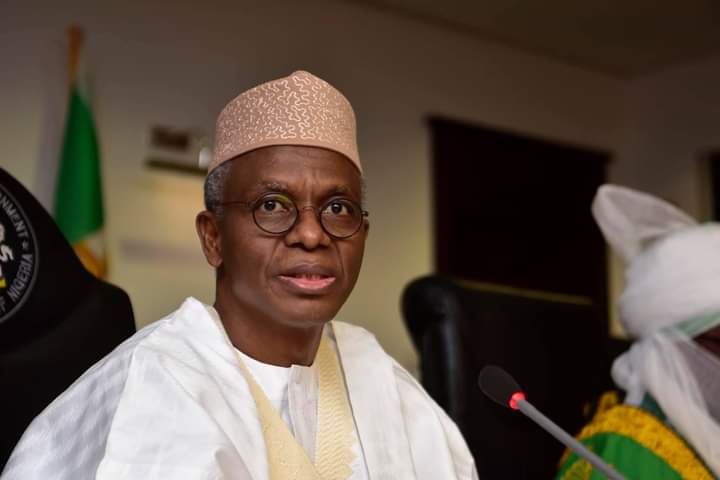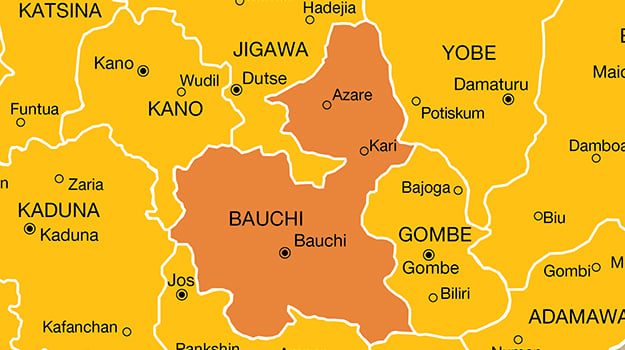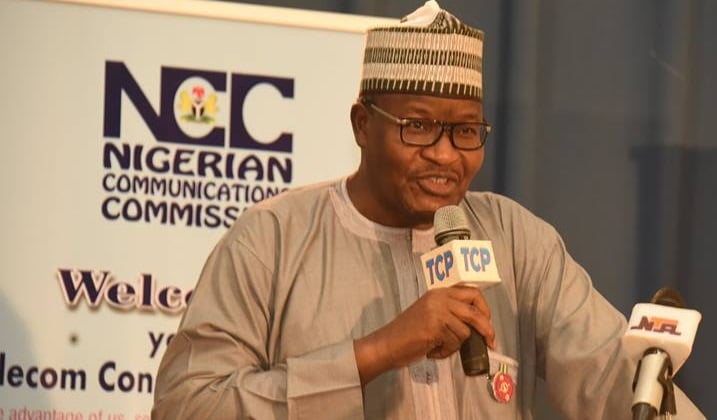Nasir el-Rufai
Nasir El-Rufai, governor of Kaduna, says the state will expand financial inclusion as an accelerator of economic growth.
El-Rufai stated this at the presentation of findings of the Enhancing Financial Innovation & Access (EFInA) survey of financial inclusion of the state on Thursday.
He noted that the findings “highlight the significant market opportunity for financial service providers to address the financial needs of adults in Kaduna.’’
Represented by the Hadiza Balarabe, deputy governor, El Rufai said the state’s policy encourages opportunities to bring financial inclusion to the 55% of adults that are currently excluded.
Advertisement
According to the survey, 62 percent of adults in the state do not use any regulated financial services, and most of them are women, people in rural areas, farmers and micro-entrepreneurs.
The governor, who said that the government seeks to reverse the figures, highlighted the policy steps being taken to expand financial inclusion.
He said these include a roadmap and blueprint for the adoption of state-wide digital payment infrastructure, with the support of the Bill Gates Foundation.
Advertisement
According to him, Kaduna is also partnering with the United Bank for Africa (UBA) to improve financial access points in all the 23 LGAs.
El-Rufai also explained that his administration appreciates the strong impact that access to telecommunications services on financial inclusion, adding that ‘’KDSG is working in partnership with IHS Towers to improve and provide mobile network (voice and data) in 42 blind spots across the state.’’
The governor disclosed that ‘’about half of the installations in this project are already done, and the rest are scheduled for completion by the end of September 2021.’’
“This adoption of technology extends to official payments and the registration of residents. Aside from digitising payments, Kaduna State is digitising identity, capturing the biometric details of over the 3.5m residents in the database of the Kaduna State Residents Registration Agency (KADRRA).
Advertisement
“The goal is for KADRRA to reach 9 million residents, about 90% enrollment of residents by December 2022,’’ he further said.
In her remarks, Ashley Immanuel, chief executive of EFInA, said that the survey – Kaduna State Deep Dive Survey – is the first time that EFInA had conducted such detailed financial inclusion research at the state level.
“This data shows that, while there is work to do to improve financial inclusion and financial health of adults in Kaduna state, there is also tremendous opportunity to do so by expanding the reach of relevant, affordable digital financial services and agent networks,” she said.
‘’We are pleased to provide this data as a resource for stakeholders such as government, financial service providers, development partners and others to develop targeted strategies to drive inclusion in Kaduna State.”
Advertisement
Among the survey findings are that “only 1% of adults in Kaduna State are insured, but 0.7 million uninsured adults say they would be interested in microinsurance. While only 33% of adults in Kaduna State are banked, 2 million unbanked adults in the state own mobile phones and could be reached with mobile money’’.
The survey noted that “financially excluded adults in Kaduna State are more likely to reside in rural areas, have lower levels of education, be microentrepreneurs or farmers, and have limited access to bank branches or other financial access points.’’
Advertisement
The survey which was funded by the Bill & Melinda Gates Foundation, and the UK Government’s Foreign Commonwealth & Development Office said ‘’women continue to be more financially excluded than men, with only 30% of women in Kaduna State using formal (regulated) financial services, compared with 46% of men.’’
In a nationwide report released last month, EFInA said 51 percent of Nigerian adults have access to formal financial services in 2020, while 38 million citizens — 36 percent of the adult population — remain completely financially excluded.
Advertisement
Add a comment






